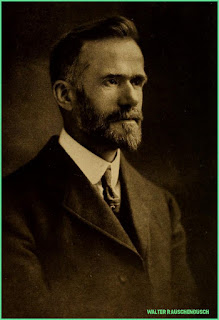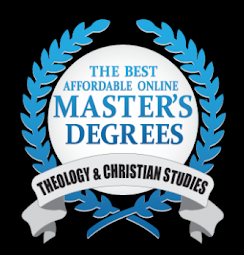Top 4 Fantastic Experience Of This Year’s Walter Rauschenbusch
Top 4 Fantastic Experience Of This Year’s Walter Rauschenbusch. Walter Rauschenbusch, a German-born pastor and American theologian was an American Protestant minister and pastor who taught at both the Rochester Theological Seminary and St. John's College. Rauschenbus Chafing was a prominent figure in both the American Quaker movement and the socialist, Unitarian church movements in the United States. He was a leading figure in the Social Gospel movement, which sought to bring the gospel to the working class of America. It was also believed by some to have been founded on his conversion to socialism. He was also a prolific author and printer.
Walter Rauschenbusch's most well-known book is Social Gospel. This was first published in German in 1950 and English translation followed soon after. In this book he stresses the need for a “liberal revolution.” Such a revolution, he believed, could provide the catalyst for social change and positive societal progress in America. Chafing viewed socialism as not a progressive political movement but more of a conservative ideology that preached a materialistic world view.
This concept was heavily based on his German studies and had much of its content from his time spent as a student of German philosophy. However, he completely changed his mind about the viability of a socialist form of government after the events of Pearl Harbor and the declaration of war by the United States on Japan. After this period he began to emphasize the importance of the Reformation in terms of laying the groundwork for liberalization. He went on to say that a reformation which has its origins in a democratic environment would be far more likely to succeed than one that was built on a basis of absolute monarchy. He saw the handwriting on the wall pointing to the imminent failure of traditionalist liberalism and so he said he was out.
Instead he and several of his followers founded the Humanist Association and worked for the affirmation of human rights around the world. They focused their efforts on religious freedom, free speech, and other civil liberties. Unfortunately, it was not until the First World War that these ideas really began to find some traction. They were not very effective, however, and after the war they faded into historical oblivion. Still, the writings of Walter Rauschenthal are still available and they have gained a lot of significance due to their focus on the role of religion in society. In particular, he is credited with popularizing the idea of separation of church and state.
What is most interesting about this early work is that it is a great example of how liberalism as a whole operates today. The book starts off by outlining the need for a liberalization of religious authority as a response to the rise of nationalism and religion based movements throughout Europe in modern history. It goes on to argue that liberalization needs to take on many forms. The first is political liberalization and follows with what was to become today's human rights movement. Religious and other conservative movements opposed liberalization and sought to maintain the status quo.
This tension between liberalism and religious authority can still be seen today. Many criticisms of religious belief focus on the supposed promotion of human inequality and the exclusion of the lesser good in favor of the greater good of religious belief. While this may be true of some religions, the promotion of equality and justice across the board is a trait of liberal democracy. The concern for people's rights to freedom of speech and religion also goes back to the very roots of liberalism itself.
This is important to note because while there have been periods of liberalization throughout history, the danger comes from seeing this as a permanent trend. The universal applicability of democracy is a principle that has stood the test of time and is something that human civilizations have sought time and again. The ability of humans to unite and create progressive laws that benefit everyone is also something that human societies have strived for since the beginning of time. With this in mind, it is not implausible to believe that progressives can truly triumph and that human rights can exist universally.
Walter Rauschenberg was right to call his book A History of Modernity a “social history of the West.” No book could truly be comprehensive or accurate without a basic understanding of human rights and democracy. By emphasizing the relationship between these two concepts and examining the historical legacies of various groups who exercised their control over them, it becomes possible to see how ideas about human rights, freedom, and government developed throughout various historical periods. In doing so, the reader is left with an improved appreciation of the diversity and history of the human race.
Walter Rauschenbusch's most well-known book is Social Gospel. This was first published in German in 1950 and English translation followed soon after. In this book he stresses the need for a “liberal revolution.” Such a revolution, he believed, could provide the catalyst for social change and positive societal progress in America. Chafing viewed socialism as not a progressive political movement but more of a conservative ideology that preached a materialistic world view.
This concept was heavily based on his German studies and had much of its content from his time spent as a student of German philosophy. However, he completely changed his mind about the viability of a socialist form of government after the events of Pearl Harbor and the declaration of war by the United States on Japan. After this period he began to emphasize the importance of the Reformation in terms of laying the groundwork for liberalization. He went on to say that a reformation which has its origins in a democratic environment would be far more likely to succeed than one that was built on a basis of absolute monarchy. He saw the handwriting on the wall pointing to the imminent failure of traditionalist liberalism and so he said he was out.
 |
| Biographies Rauschenbusch, Walter Timeline The Association |
What is most interesting about this early work is that it is a great example of how liberalism as a whole operates today. The book starts off by outlining the need for a liberalization of religious authority as a response to the rise of nationalism and religion based movements throughout Europe in modern history. It goes on to argue that liberalization needs to take on many forms. The first is political liberalization and follows with what was to become today's human rights movement. Religious and other conservative movements opposed liberalization and sought to maintain the status quo.
This tension between liberalism and religious authority can still be seen today. Many criticisms of religious belief focus on the supposed promotion of human inequality and the exclusion of the lesser good in favor of the greater good of religious belief. While this may be true of some religions, the promotion of equality and justice across the board is a trait of liberal democracy. The concern for people's rights to freedom of speech and religion also goes back to the very roots of liberalism itself.
This is important to note because while there have been periods of liberalization throughout history, the danger comes from seeing this as a permanent trend. The universal applicability of democracy is a principle that has stood the test of time and is something that human civilizations have sought time and again. The ability of humans to unite and create progressive laws that benefit everyone is also something that human societies have strived for since the beginning of time. With this in mind, it is not implausible to believe that progressives can truly triumph and that human rights can exist universally.
Walter Rauschenberg was right to call his book A History of Modernity a “social history of the West.” No book could truly be comprehensive or accurate without a basic understanding of human rights and democracy. By emphasizing the relationship between these two concepts and examining the historical legacies of various groups who exercised their control over them, it becomes possible to see how ideas about human rights, freedom, and government developed throughout various historical periods. In doing so, the reader is left with an improved appreciation of the diversity and history of the human race.

Post a Comment for "Top 4 Fantastic Experience Of This Year’s Walter Rauschenbusch"